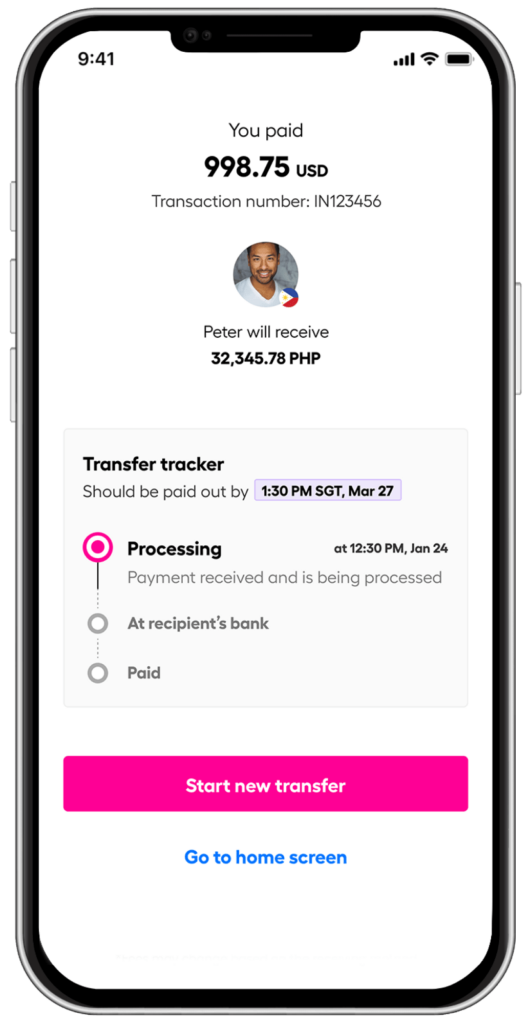How to get a job in Singapore from India 2024: (6 easy steps)

This article covers:
- Quick read section
- Do you know?
- How to get a job in Singapore from India – 6 easy steps
- Best job opportunities in Singapore for Indian candidates
- Eligibility for jobs in Singapore from India
- Work permits and immigration processes
- Singapore workplace culture
- How to apply for jobs in Singapore from India – Do’s & don’ts when applying
- Before you go…
- FAQ’s
Singapore is one of the most prosperous economies, not just in Asia but in the entire world. With a highly developed job market, lucrative salaries, and a diverse working environment, it has become an attractive job destination for foreign workers.
For those who are looking forward to working in Singapore and wondering, “Can I get a job in Singapore from India?”, the answer is YES. But how and where to get started? That’s exactly what we are going to discuss in this blog. Read on to find out how to apply for jobs in Singapore from India in detail.
Quick read section
How to get a job in Singapore from India?
- Step 1: Research the Singapore job market
- Step 2: Create a high-quality ATS-friendly resume
- Step 3: Apply online on job portals
- Step 4: Clear job interviews
- Step 5: Get an Employment Permit
- Step 6: Complete visa formalities
Do you know?
- The overall unemployment rate has decreased to 1.9% in 2023 from 2.1% in 2022. At the same time, the citizen unemployment rate remains at 2.9%. [1]
- While the employment rate has come to 66.2% from 67.5% in 2022, it remains higher than countries like the United Kingdom, Switzerland, and even the United States. [2]
- Singapore’s GDP is expected to build pace in 2024 with a growth rate of 1 to 3%. [3]
How to get a job in Singapore from India – 6 easy steps
Send money to 60+ countries

Step 1: Learn about the Singapore job market
Finding a desired job in a foreign country is not as straightforward as finding a job in your home country. There are various factors you need to consider before applying for a suitable job. So, before anything, understand the employment landscape of the country.
The Singapore job market is strong and stable. With a higher employment rate and comparatively lower unemployment scenario, the country has become a dream working destination for people from all across the world. Start your research by identifying the most lucrative industries in the country that align with your job profile. Consider looking at authentic industry reports, labour market trends, etc., to support your research. Besides, it is also advisable to learn about employment laws and regulations for migrant workers. This will immensely help you in your job search.
Step 2: Draft a resume that caters to Singapore’s job market
Your resume (CV) and cover letter are important tools to display your skills and talent to potential employers. It is the first step towards getting your dream job. Hence, it becomes critical to create a high-quality and ATS-friendly resume. A reliable ATS resume template will help you in this regard. There are a few things to keep in mind when drafting a resume:
- Make sure it matches the Singapore standards.
- It should be simple and precise.
- Avoid exaggerating anything in your resume.
- Avoid spelling mistakes and grammatical errors.
- Include a few hobbies.
- Define your career objectives nicely.
Also Read: Top part-time student jobs in Singapore
Step 3: Apply on Singapore job sites
Once you have done your homework on the Singapore job market and tailored a good quality ATS-friendly resume, you can move to the next major step, i.e., applying for jobs in Singapore. Multiple trusted Singapore job websites, such as Jobstreet, MyCareersFuture, Indeed, GrabJobs, Monster, etc., post an array of job opportunities from difficult industries in Singapore.
All you need to do is register yourself with such sites and apply online. At the time of applying for jobs, make sure to read the job description carefully to ensure that it matches your skills and qualifications. Besides, it is also necessary to perform a background check on the company or employer you are applying for. This will help you avoid any potential job scams.
Step 4: Prepare for job interviews
Getting shortlisted for an overseas job interview is no less than an achievement. It is a golden opportunity that can help you turn your dream of working abroad and generating wealth into reality. Thus, it is extremely important to go through this step carefully.
Take enough time to research and prepare the most asked interview questions that are relevant to your job profile and industry. There are plenty of sources on the internet where you can find such information. Besides, it is also advisable to practice the interview in real-time with a friend or family member.
Step 5: Apply for an employment permit
Once you clear the interview and get a Singapore offer letter, the next and most critical step is to get an Employment Permit from the Ministry of Manpower. Note that your employer is responsible for obtaining the employment permit on your behalf. They can either apply on their own or with the help of a registered agent.
Moreover, it can take three to four weeks to receive the Employment Permit. Once it is issued, you will receive an IPA (In-Principle Approval) letter. It offers single entry to Singapore and allows you to collect your Employment Card from the MoM.
Step 6: Complete visa formalities
Once you have the Employment card, you can proceed with the final immigration formalities like submitting biometrics, completing medical checks, and so on. Note that the immigration procedure can vary based on individual cases. Hence, it is recommended to learn about the exact procedure and requirements on the official website of the Ministry of Manpower.
Also Read: Cost of living in Singapore
Best job opportunities in Singapore for Indian candidates
Top occupations | Average salary per year |
Business & Management | 133,403 SGD |
Insurance | 121,660 SGD |
Law | 117,173 SGD |
Banking & Finance | 110,708 SGD |
Aviation & Shipping | 104,110 SGD |
Healthcare & Medical | 101,867 SGD |
IT and programming | 84,713 SGD |
Engineers & Technicians | 69,143 SGD |
Hotel & Tourism | 65,580 SGD |
Arts, Culture, Performance | 56,475 SGD |
Source: Average Salary Survey Singapore 2024
Eligibility for jobs in Singapore from India
- Educational Qualifications: Every job vacancy in Singapore for Indian candidates requires a specific level of education from the job candidates. For most positions, at least a graduate or postgraduate degree is sufficient. Apart from university education, some types of jobs also require other skills and certifications for specific positions. It is highly recommended to read the job description carefully before applying for the post.
- Employment permit: An employment permit is mandatory to work in Singapore. In other words, having a Singapore offer letter is not enough to be eligible to work in the country. After getting an offer from a Singapore-based company, you must obtain an Employment Permit from the Ministry of Manpower to join the organisation.
- Language proficiency: Singapore features a diverse work culture with people from all across the globe working and living here. While there are four official languages, English is the primary language for migrant workers. Most workplaces require a good level of proficiency in English from foreign job seekers. Some of them may even require IELTS from the candidates.
- Other specific requirements: Apart from the ones mentioned above, there can be some additional requirements (for example, additional medical tests) depending upon the type of job role and industry. Make sure to go through them before proceeding further.
Work permits and immigration processes
Type of Singapore work permits for professionals
- Employment Pass (EP): It is the most common work permit that allows highly skilled managers, executives, and other professionals to work in Singapore from India. To be eligible for this permit, the applicant must have a minimum earning of $5,000 per month. Besides, they must also clear the COMPASS (Complementary Assessment Framework).
- S Pass: It is introduced for foreign skilled workers who want to work and live in Singapore. It requires the applicants to earn at least $3,150 per month.
- EntrePass: It is available for foreign entrepreneurs who are willing to start their own innovative business in Singapore.
- Personalized Employment Pass: It is granted to applicants who already have the Singapore Employment Pass. It offers more flexibility and benefits than the EP.
- Overseas Networks and Expertise Pass: It is available for candidates who have achievements in the fields of arts, business, culture, sports, research, and academics.
Immigration process for Singapore
- Step 1: Get a job offer.
- Step 2: Apply for an Employment Pass. (Your employer must apply on your behalf).
- Step 3: Visit Singapore to receive your EP.
- Step 4: Get your biometrics done at the Ministry of Manpower service centre.
- Step 5: Get your pass card.
Also Read: Tips for finding the best exchange rates for sending money to India from Singapore
Singapore workplace culture
- Top-down approach: Similar to other Asian countries, Singapore workplaces follow a hierarchical approach. For instance, managers and senior professionals are the key decision-makers of the organisation.
- Stringent workplace rules: Singapore is known for its orderly and disciplined culture. Almost all national and multinational companies in the country have a strict set of rules and regulations that need to be followed by each employee. The main objective of imposing these rules is to maintain a positive and peaceful working environment.
- Formal business attire: Dressing sense at the workplace is very straightforward in Singapore. Employees are encouraged to wear formal business attire. Men can opt for suits, ties, full-sleeved shirts, and tailored pants. Whereas, women can go for pantsuits, skirts, shirts and blouses.
- Diversity: Singapore is a diverse nation. You will find people from different nationalities working together harmoniously.
- Slightly longer working hours: As compared to other countries, working hours in Singapore are slightly longer. The maximum limit set by the Ministry of Manpower is 44 hours per week or 8 hours per day.
- Teamwork and collaboration: Teamwork and collaboration are highly valued across all job sectors in Singapore. Most companies believe in teamwork to achieve shared goals.
How to apply for jobs in Singapore from India – Do’s & don’ts when applying
Do’s
- Choose an industry with higher growth potential.
- Learn about Singaporean employment practices.
- Apply on trusted job portals.
- Research company (s) well before applying.
- Start your visa process early.
- Stay updated regarding immigration policies.
- Steer clear of job scams.
- Learn about the way of living in Singapore.
Don’ts
- Put too much information on your CV.
- Apply with a generic cover letter and resume.
- Lie or exaggerate your skills and qualifications.
- Overlook cultural differences.
- Neglect networking with professionals.
- Settle for less.
Before you go…
With growing employment opportunities, higher salaries, higher safety and a great quality of life, Singapore is a perfect country for Indians to work and settle in. We have outlined everything you need to know about how to apply for jobs in Singapore from India. All you need to do is follow the process.

Meanwhile, if you need to transfer funds from India to Singapore (and vice-versa), utilize a reliable money transfer service like Instarem. It is a trusted and high-rated fund transfer service that facilitates money transfers across 60+ borders fast**, simple, and hassle-free. With surprisingly low exchange rates#, in-app and online transfers, and a fully secure fund transfer channel, Instarem is a go-to solution for individuals and businesses alike.
Moreover, you can earn InstaPoints every time you transfer money using Instarem. These points can be redeemed to cut the cost of future transfers.
FAQ’s
Q. How to find jobs in Singapore from India?
You can find hundreds of jobs from a wide array of industries on mycareersfuture.gov.sg. It is a Singapore Government-owned website that helps job seekers find jobs matching their skills and qualifications.
Q. Is it possible to get a job in Singapore from India?
Yes. It is possible to get a job in Singapore from India. You need to follow a strategic approach that should include a good amount of research. Besides, you need to apply diligently after meeting all the job requirements.
Q. Which job is best for an Indian in Singapore?
The choice of the right job for Indians in Singapore depends on their education, skills, and personal preferences. However, some of the most thriving job sectors in the country include IT, finance, sales & marketing, etc.
Q. Does Singapore need IELTS for a job?
English is one of the four official languages in Singapore. It means you should be highly proficient in English if you want to work and live in Singapore. However, whether or not you need an IELTS score for a job depends on the specific job role and requirements.
While some employers strictly require proof of English proficiency, others may offer exemptions based on your educational background, skills, and experience.
Q. Can I directly apply for a job in Singapore?
Yes. You can directly apply for a job in Singapore on either the official websites of your prospective employer or on various third-party job portals.
Q. How to get a job offer in Singapore from India without PR?
The best way to get a job offer in Singapore from India without PR is to apply on Singapore job banks and platforms like LinkedIn. Once you get a job, you can apply for a work permit. And once you complete the minimum residency requirement on your work visa in Singapore, you can apply for a PR.
Q. How much can an international student earn in Singapore?
International students are allowed to work up to 16 hours per week during their course and full-time during their breaks. Since there is no minimum wage in Singapore, the earnings of students solely depend on the type of work and employer. Most part-time students can manage to earn around $1500 to $2000 per month.
Q. What is the age limit for working in Singapore?
The minimum age for working legally in Singapore is 13 years. There are some restrictions and limits for minor workers that must be adhered to by the employer. Moreover, there is no maximum age limit for working in Singapore.
Q. Can I get work-from-home jobs in Singapore from India?
Getting a work-from-home job in Singapore from India can be challenging, especially if your job role involves direct interaction. However, you can still try to search for a remote opportunity on the Singapore job portal for Indian job seekers.
Disclaimer:
- This article is intended for informational purposes only. All details are accurate at the time of publishing. Instarem has no affiliation or relationship with the products or vendors mentioned.
- ** Fast meaning 75% of our transactions are completed in 15 minutes. Depending on the funding method.
# When it comes to affordable exchange rates and fees, it’s worth noting that the cost will vary depending on how you choose to fund your transactions. Credit card funding and bank transfer fees can differ significantly.
Citations:



























